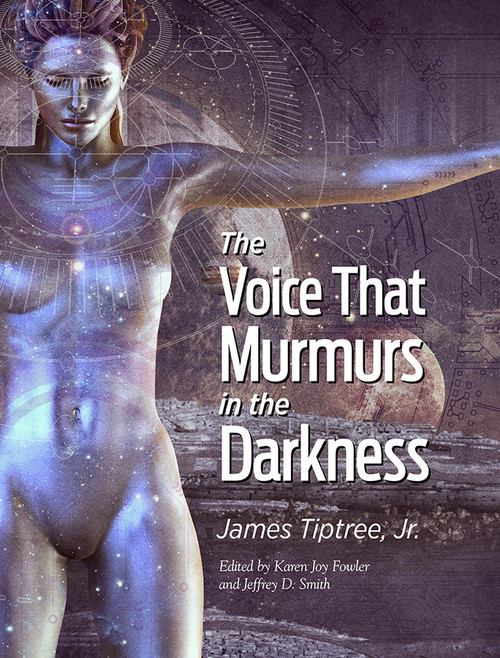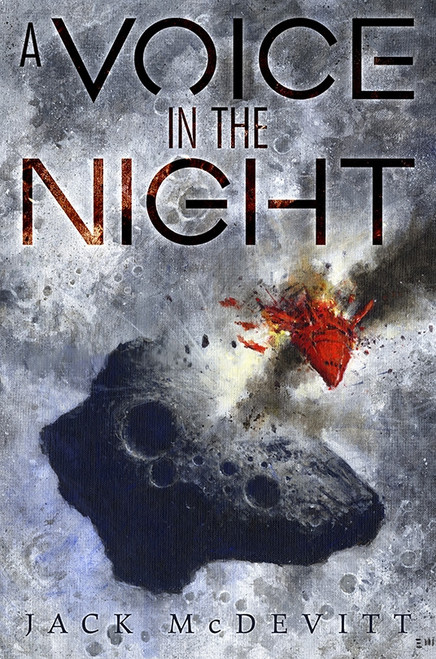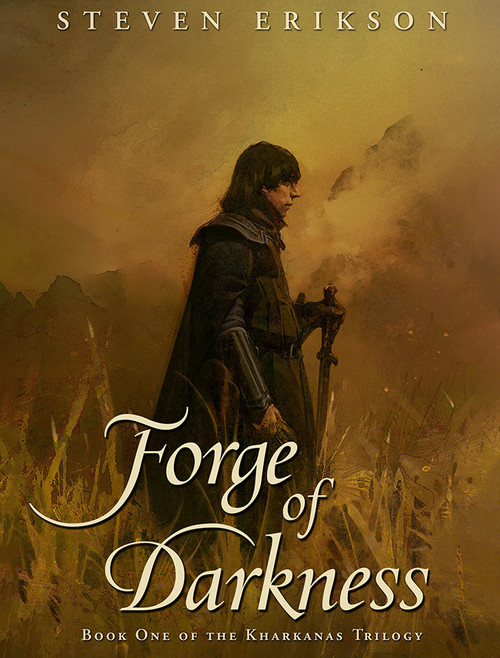Dust jacket illustration by David Ho.
Edited by Karen Joy Fowler and Jeffrey D. Smith.
Introduction by Karen Joy Fowler.
Pioneering science fiction writer Alice Sheldon, who found fame using the pseudonym James Tiptree, Jr., among others, left behind a remarkable body of short fiction, much of it uncollected or out of print. Now The Voice That Murmurs in the Darkness, co-edited by Jeffrey D. Smith and two-time Booker Prize nominee Karen Joy Fowler, brings new light to some of Tiptree’s best and overlooked stories.
The stories represented span Tiptree’s career, and were primarily selected from a list made by Sheldon which she called “the cream of Tiptree,” none of which were included in Her Smoke Rose Up Forever. With a title drawn from Sheldon’s description of Tiptree as “the voice that murmurs in the darkness,” among the wonders featured here are…
In “Excursion Fare,” Dag and Philippa are about to be lost at sea in the wreckage of their balloon Sky-Walker, their grand adventure a failure, when a hospice ship called Charon rescues them, and they find themselves on a cruise exclusively for the dying—which may be carrying far stranger passengers.
A surreal evening ensues in “The Man Doors Said Hello To,” when a tall man enters a bar, carrying miniature girls as tenants in his pockets, and takes the narrator with him on a strange rescue mission through secrets hiding in the corners and ledges of the city.
At nineteen, Jolyone Schram cries out in “Time-Sharing Angel,” despairing when she glimpses a vision of overpopulation and resulting planetary devastation, only to be heard by an interstellar angel who produces a shocking, simple fix that affects children across Earth and changes the future.
And, in “Yanqui Doodle,” a soldier undergoes a harrowing detox treatment from specialized drugs given to soothe the conscience during combat—a process that might itself be as painful as the memories of atrocities committed under their influence—and grows ever more unstable.
The Voice That Murmurs in the Darkness encompasses thirteen exceptional stories and one essay (“How to Have an Absolutely Hilarious Heart Attack”), covering the years 1968 to 1987, and includes an exclusive introduction from Karen Joy Fowler. Throughout this landmark new collection is Tiptree’s remarkable prose, shot through with invention and big ideas, exploring classic themes of identity, politics, what it is to be human, and the miraculous oddity of life—from what lies inside us out to the very edges of the universe.
Limited: 1000 numbered hardcover copies
Introduction by Karen Joy Fowler
(excerpt)
I know from talking to those who did have that experience that the unmasking was a major event in their reading lives. Most remember where they were and how they learned that the brilliant James Tiptree, Jr. was actually shy Alli Sheldon. Ursula Le Guin, who had a deep epistolary friendship with Tiptree, has written about the joyous shock of the news. Like Christmas! she said.
Readers and writers have come now to a place in which the identity of the author is seen as a major component of the work. We struggle with questions of appropriation and ownership. We place a high value on authenticity. We want to know the details of writers’ private lives, although Sheldon herself warned us—“There is a certain magic in writing, and there is no magic in writers.” Even in the dreamlike realms of fiction, we seem obsessed with the writer’s lived experience, often more important to us than the writer’s imagination. I wonder how Sheldon’s masquerade would have been received today. Christmas? Or April Fool’s?
I have many feelings on all sides of these issues. But among them is this: it is false to believe that we can know who a writer is based only on biography. Few of us know even ourselves with assurance. Identity is too complicated, too situational, too mutable for that. In the case of Alice Sheldon, my suspicion is that the use of a pen name, and particularly a male pen name, allowed her to express herself with more rather than less authenticity. According to her own paradigm in which humans are divided into two sexes—Men and Mothers—she would have been a man.
Table of Contents:
- Introduction by Karen Joy Fowler
- Excursion Fare
- The Snows Are Melted, the Snows Are Gone
- The Psychologist Who Wouldn’t Awful Things to Rats
- Fault
- All the Kinds of Yes
- The Man Doors Said Hello To
- Beam Us Home
- The Only Neat Thing to Do
- Time-Sharing Angel
- How to Have an Absolutely Hilarious Heart Attack
- What Came Ashore at Lirios
- Yanqui Doodle
- Out of the Everywhere
- In Midst of Life
- authors_list:
- James Tiptree, Jr.
- artists_list:
- David Ho
- ISBN:
- 978-1-64524-107-2
- length:
- 376 pages







